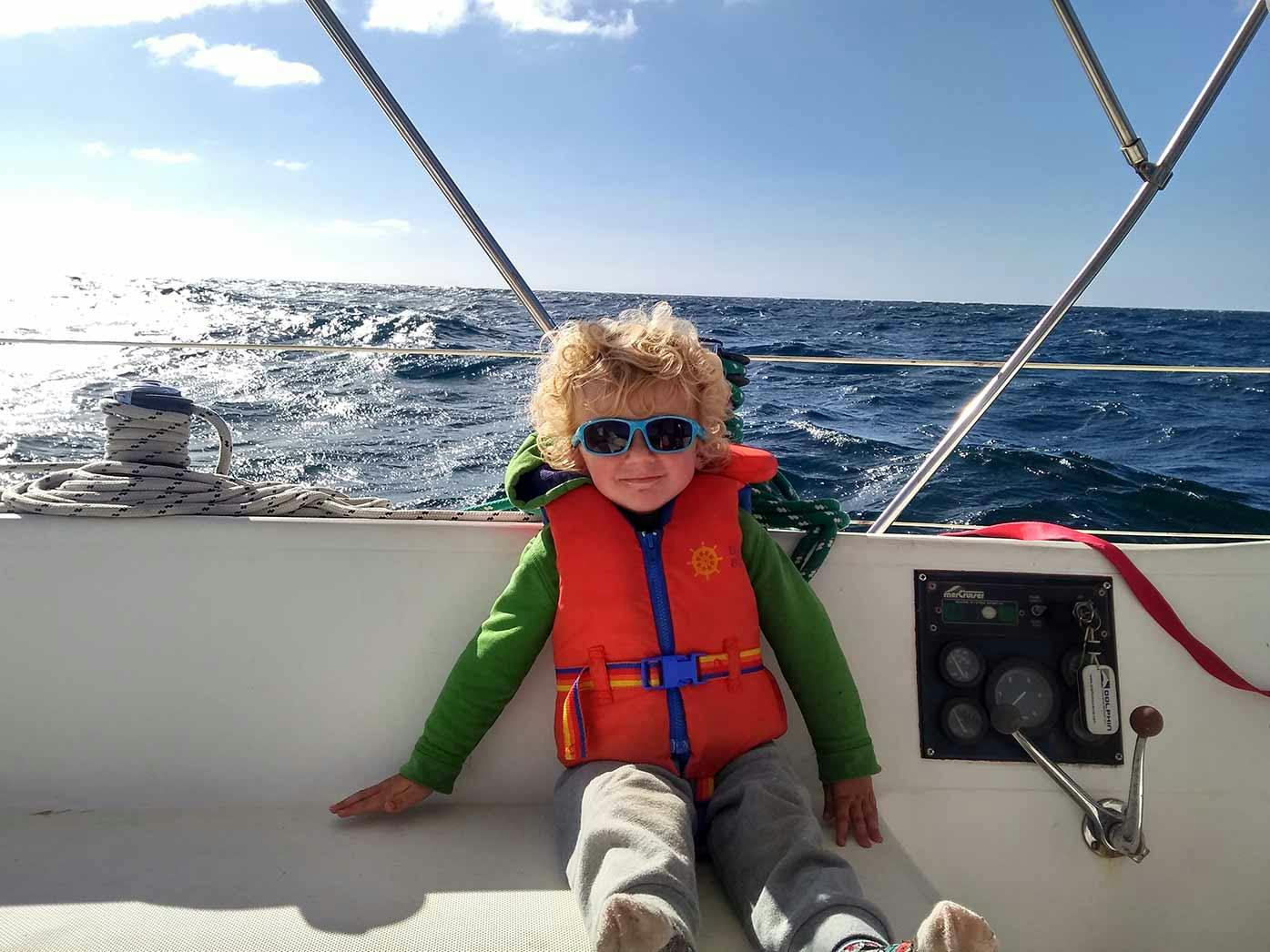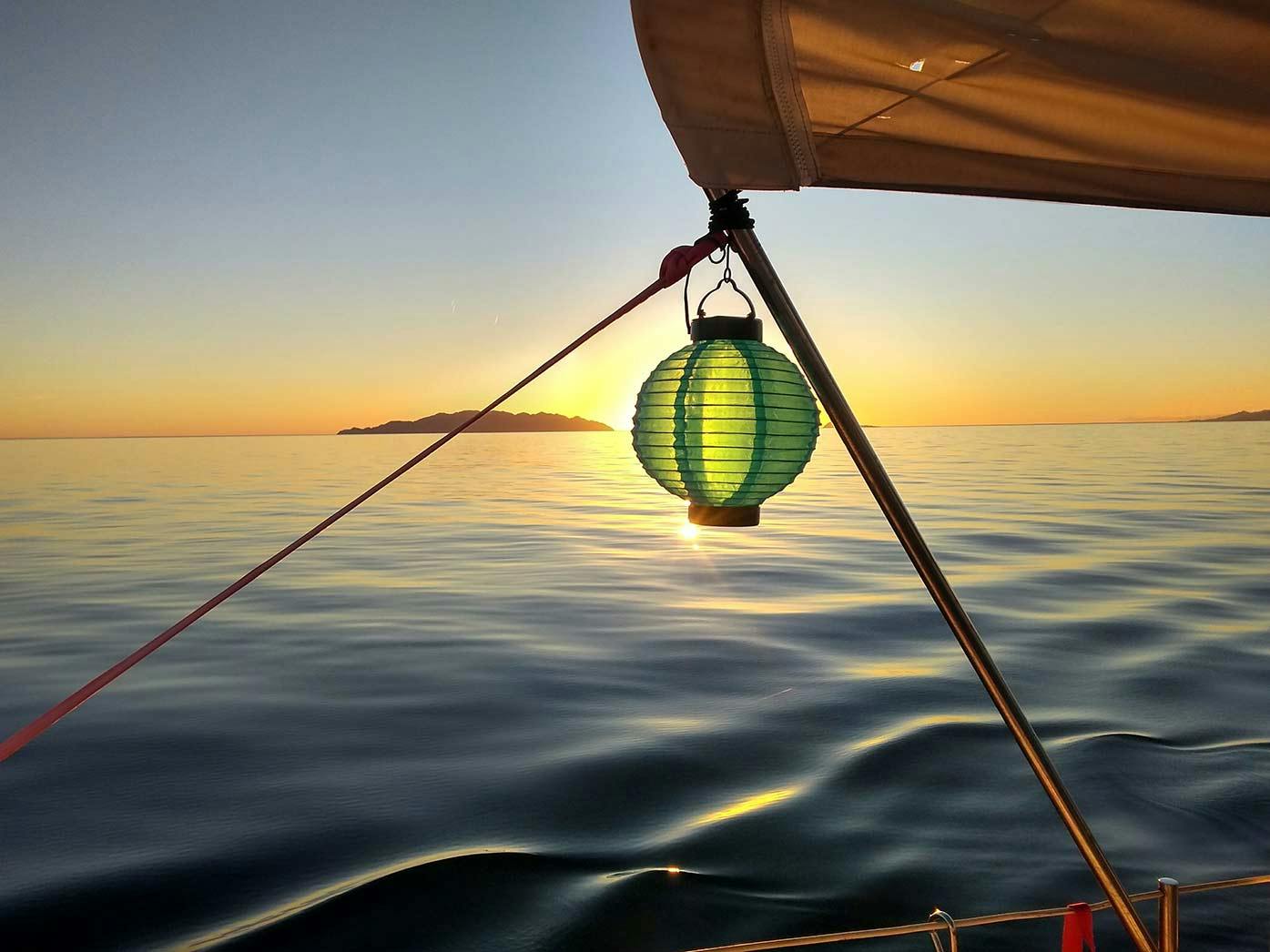Getting up in the dark on a cold September morning, we raised the anchor and watched the world wake up as we headed out of Vancouver’s False Creek. We were tired after months of preparations and the early start, but we were also excited and ready for an adventure. My partner, Doug, our almost-3-year-old, Toby, and I were setting off to sail from Canada to El Salvador where we would wait out the stormy season before continuing south. Sailing off into the sunset? Living the dream? Well, sort of…if we could only get enough sleep!
What sleeping is like while you’re sailing around the world
Months after our departure, we arrived in Mexico and realized we were still tired. We already knew a bit about sleep deprivation. Doug once solo-sailed for 15 days with a broken engine and not enough power to run the autopilot. Hand steering from French Polynesia to Hawaii, he used ropes to hold the wheel in place so he could sleep until his alarm went off 45 minutes later. It’s not a journey he looks back on fondly.
Our child didn’t sleep more than three hours at a time until he was 18 months old. You know how parents of small kids can hardly think about anything apart from sleep? Somehow we were back to that obsession, but now it wasn’t just Toby keeping us awake.
If we’re sailing through the night we do three hours on watch and three hours off (when we try to fall asleep while the waves roll us around), then nap when we can during the day. Our kid actually sleeps better on the move than at any other time. Sometimes we arrive at first light in a new place wanting nothing more than to collapse into bed, but he’s up, well-rested, raring to get out exploring.
At anchor, things aren’t as intense, but if the weather gets wild we’re on edge wondering if the anchor will hold. In marinas, dock lines creak and strange noises are all around. If it’s not the wind, it’s little crustaceans crackling by the hull. For a while, there was an alarm that kept going off that had me in a panic, until I realized Toby had been playing with my watch! Other times we’re just about to drop off when we hear the buzz of a mosquito. Dreams are forgotten as we prepare to pounce.
On calm nights, though, in beautiful anchorages with just stars and fish for company, we can’t imagine sleeping on land ever again. What we needed to do was work out the trick to make every night a good sleep night—otherwise, our big sailing adventure was in danger of being ruined by our constant yawns.

How I sleep well on the high seas
When I asked sailing friends for their top tips for sleeping on a boat, many enthused about finding the right mattress, sheets, or lighting. Others reckoned it just takes time to get used to snoozing aboard. Some swear by earplugs and sleep masks. Almost everybody had the same kind of concerns and solutions—and they fell into one of three categories: feeling safe, feeling comfortable, and sticking to a bedtime routine.
What I do to feel safe
It took a while to realize that often I couldn’t sleep because I was scared. I was scared of the wind, wondering if our or another boat’s anchor would hold, or that intruders might break in or someone would try to steal our dinghy engine: all possible but unlikely circumstances. Things do happen—somebody came aboard at night in Hawaii, a guy untied our dock lines in Oceanside, California for no good reason other than to watch our boat drift away, friends had a fishing rod stolen from their cockpit on the Baja Peninsula—but mostly that’s just bad luck.
After a scare years ago in French Polynesia where we found ourselves drifting towards a rocky shore in the middle of a stormy night, we replaced our anchor with a better one that we could trust. We store the dinghy engine away each night. We set an anchor alarm if conditions are bad to alert us if we start moving. It’s much more relaxing going to bed not feeling scared that something terrible might happen.

What I do to feel comfortable
One friend’s advice stood out: “You have to make a nest.” Our boat interior is still a bit of a work in progress, so our bedroom is not the cute, relaxing sanctuary I’d like. Think of it more like a storeroom, where everything without a proper home ends up. Even tools and spare parts creep in! But we managed to make Toby’s cabin nice—using bunting, pictures, and bright colors—and it’s given me hope for our own. We replaced the old mattress, tried to get better about regularly changing the sheets (it’s incredible how quickly salt and sand find their way inside the boat!), and, because we’ve found ourselves in some hot places, worked to improve the temperature and airflow so we don’t overheat overnight.
What I do to ensure a good night’s sleep
As we sailed around Mexico’s gorgeous Gulf of California, our sleep improved dramatically. We started getting up with the sun and settling down to sleep not long after dark. Our days were full of exercise and fresh air—swimming, snorkeling, hiking. I was hardly looking at my phone. We started eating lighter meals in the evenings and cut down on alcohol. Another discovery? It’s so much easier to fall asleep if I’m not wired from watching a scary TV show. We were finally giving our bodies a fair chance at sleep!
We haven’t solved our sleep problems completely: Like any parents, we still have occasional bedtime struggles with our kid or get woken up in the middle of the night. Sometimes it’s a sudden storm that has us wide awake in seconds. But a coffee (luckily there’s plenty here in Central America) and the image of a calm anchorage underneath the stars is enough to keep us living this wild and wonderful sailing dream.




